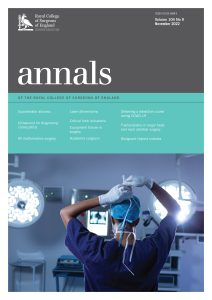A retired professor of education has lost three papers – which he said he helped edit for a former student – after the publisher discovered manipulated peer review led to their acceptance.
Roger Shouse, an associate professor emeritus at Penn State College of Education, spent the 2018-2019 academic year at Sichuan University in China as a professor of public administration. While there, he helped several students write research articles in English, and advised one who listed him as a coauthor on three papers even though Shouse didn’t ask for authorship, he told us.
Those papers – on land use, climate vulnerability and disaster response among rural communities in Bangladesh – were retracted from the journal Land Use Policy this past August, after an investigation revealed the peer review process had been manipulated.
Shouse was listed as the last author, and researcher Md Nazirul Islam Sarker of Neijiang Normal University was the first author. A fourth paper retracted at the same time, with an identical retraction notice, listed Sarker as second author but did not include Shouse.
The retracted papers are:
Continue reading ‘I never asked or expected to be included as an author’: Retired Penn State prof has three retractions for manipulated peer review



